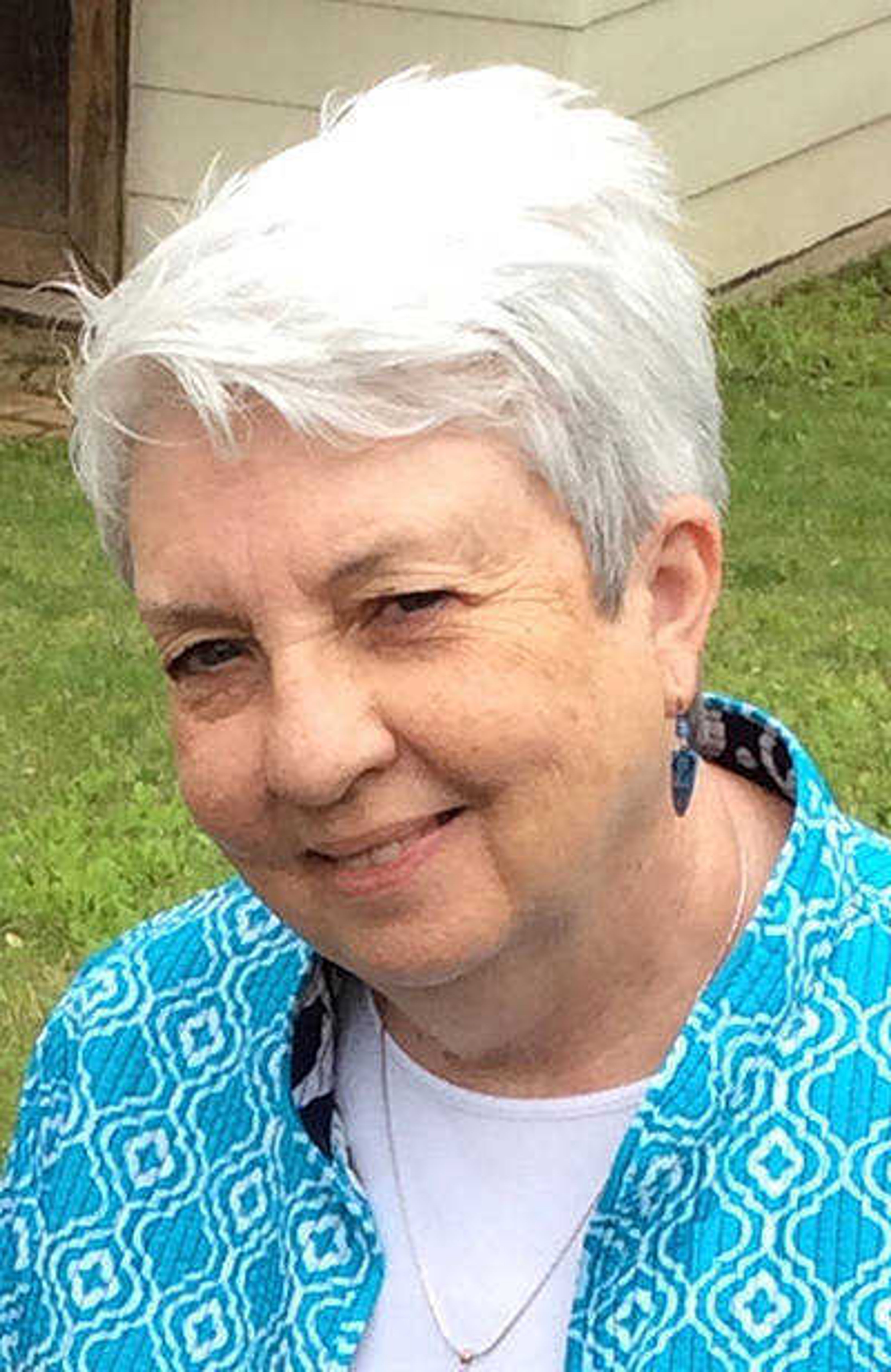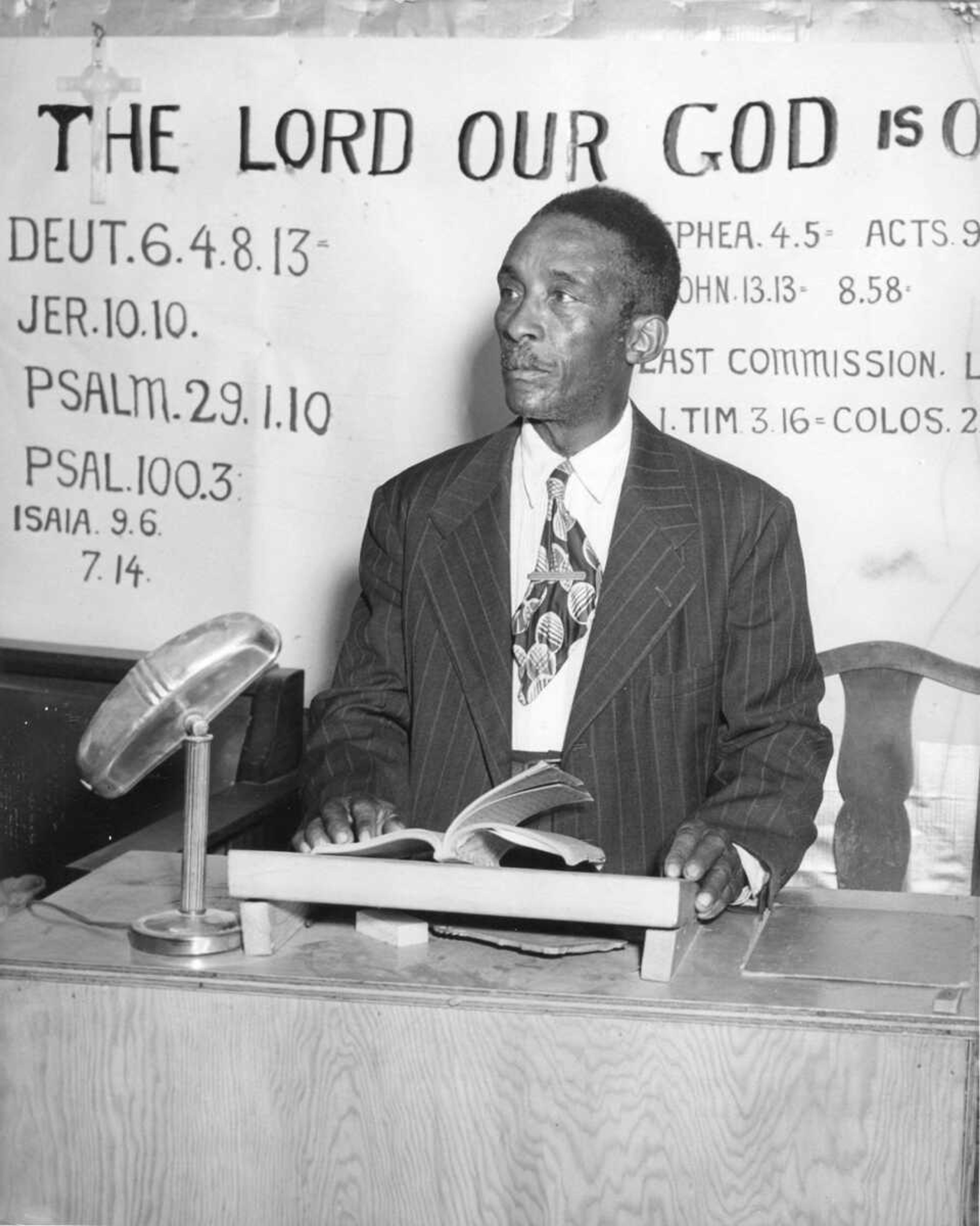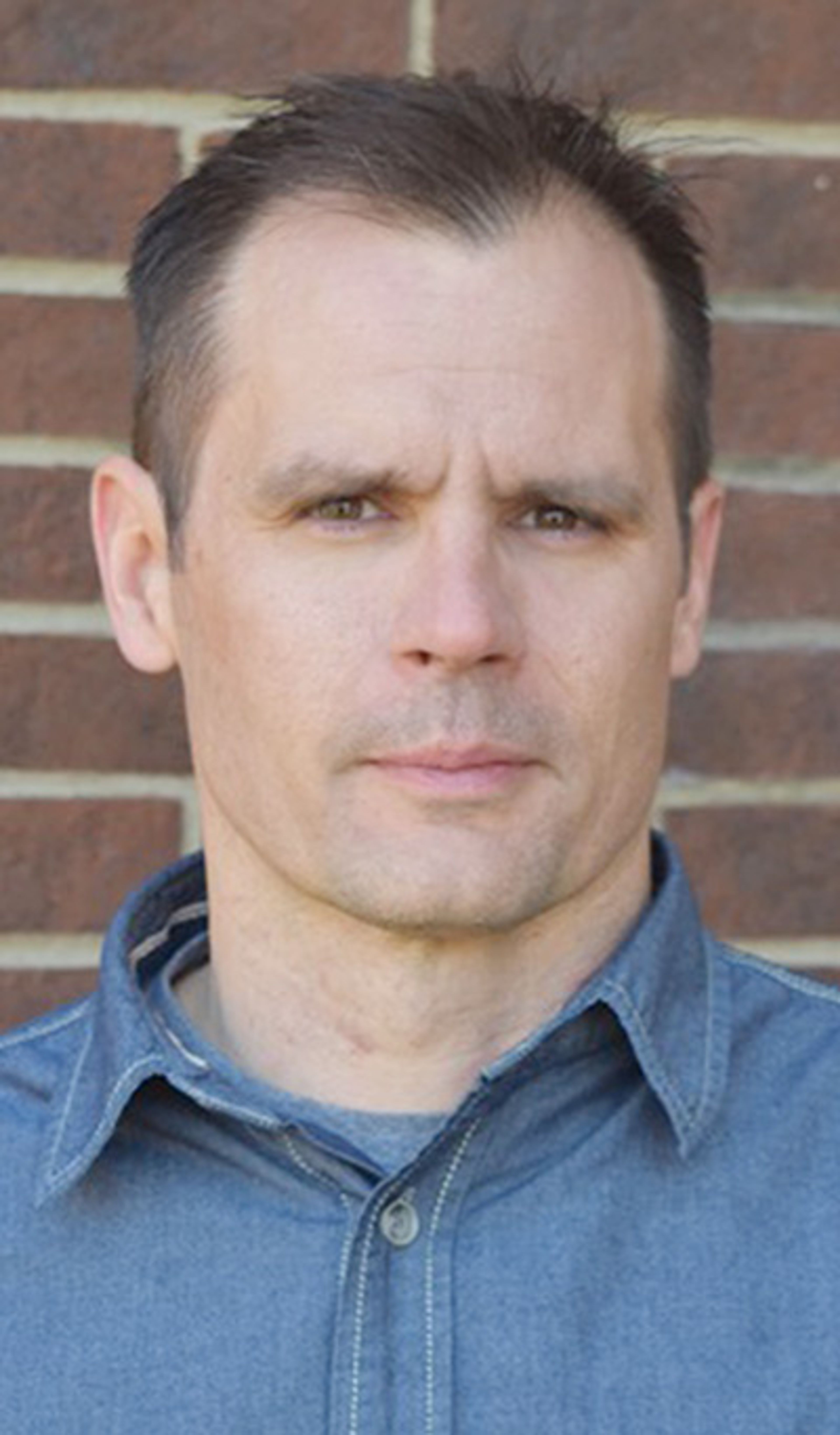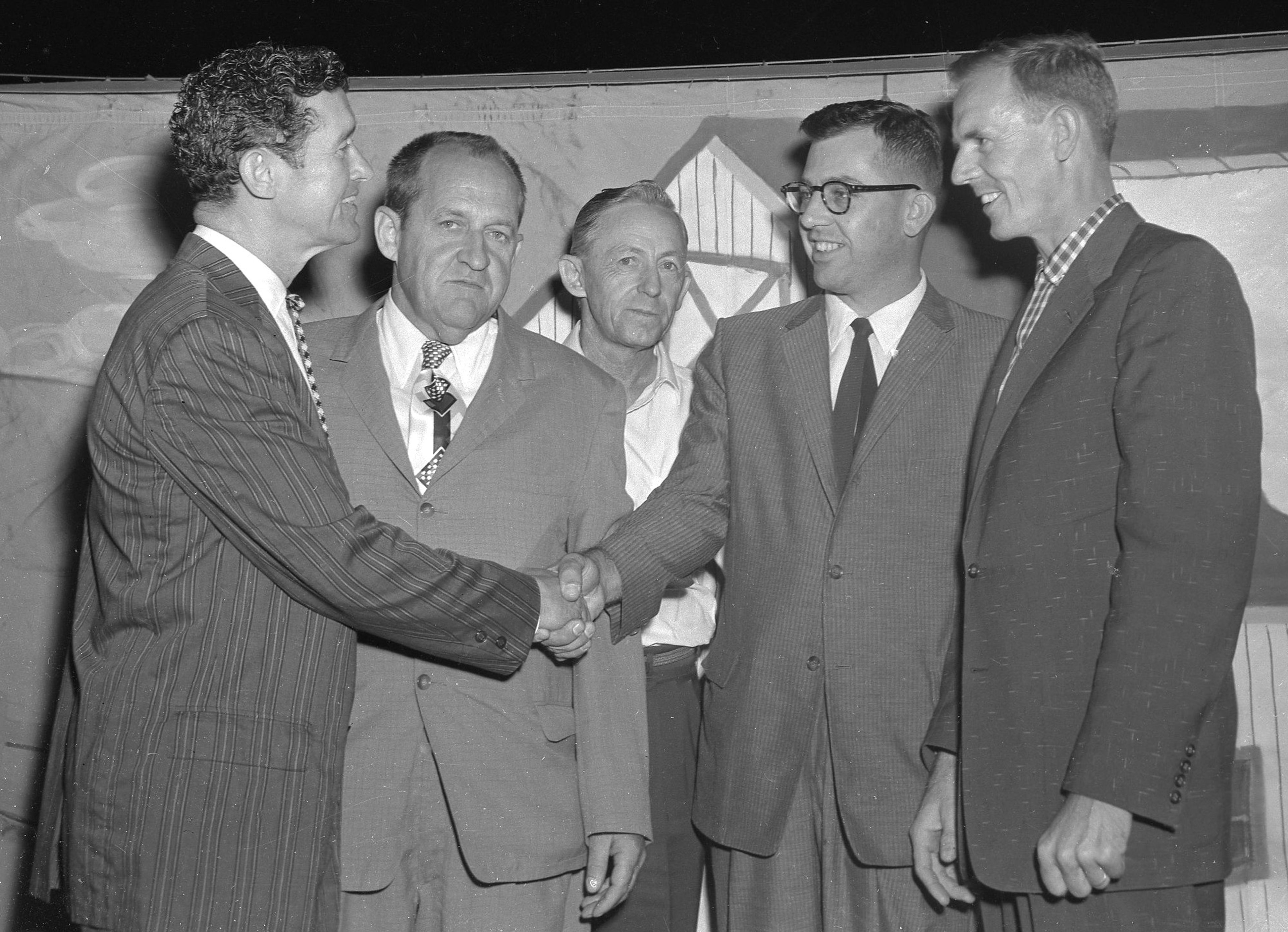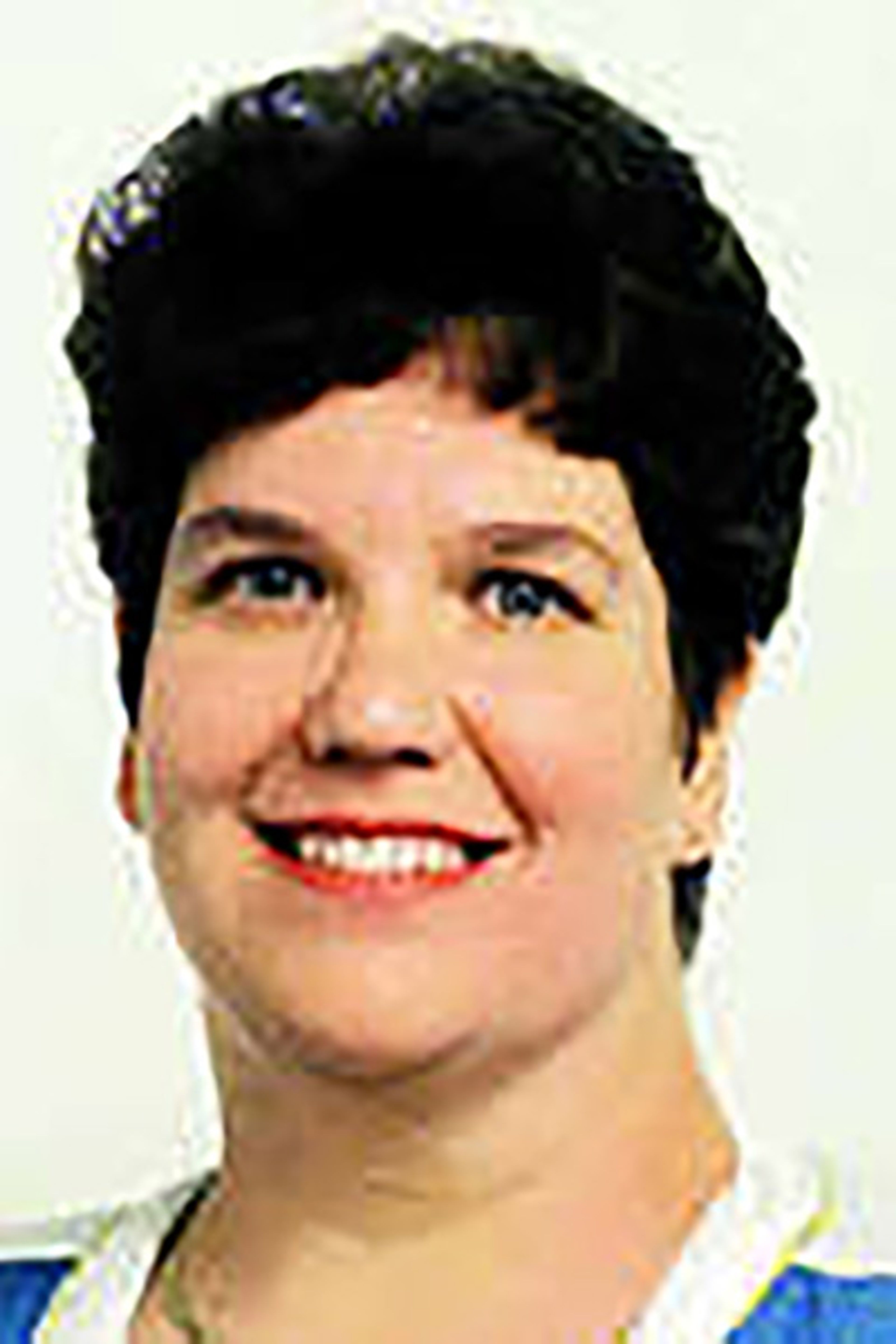Ben E. Cannon, born in 1886 in Cedarbluff, Mississippi, learned building trades as a young boy, working alongside his father. As a young teen, Cannon moved to eastern Arkansas, following bricklaying and carpentry jobs, hired to repair and restore old plantation houses. He learned to fashion wood into functional chairs, tables, benches and baby cradles. His grandfather taught him blacksmithing.
In about 1922, Cannon caught the spirit — of migration and of faith.
As did many southern Black men and families, Cannon was lured by the promise of higher-paying industrial jobs in northern cities. He stopped in Cape Girardeau, en route to Chicago, where he met folks making good wages in the cotton harvest. He decided to stay, first working cotton harvests, then hired on as an employee of Edward Hely Stone Co.
About this same time, a second spirit attracted Cannon. The Holy Spirit descended on him, and he committed himself to the Christian faith. Two short years later (1924), Cannon was led to establish a church. The church’s name evolved through the years, but was last known as The Church of Our Lord Jesus Christ of the Apostolic Faith. Cannon’s worship and preaching style was in the Pentecostal tradition, “Independent” and unaffiliated with a denominational group in the earliest years. Interestingly, Cannon’s church declared itself to be interracial in 1926, and apparently continued to be so into the 1950s.
Aquamsi Land Co. records of 1937, show Ben Cannon signed a 99-year land lease agreement for a lot on Pecan Street, east of the railroad tracks, in the south Cape Girardeau neighborhood known as Smelterville. Here the small congregation built its modest church house.
Today, some folks remember the high-spirited worship that once emanated from the Church of Our Lord Jesus Christ. Though a small congregation, many were members of Cannon’s extended family and supported his preaching with their exuberant singing, demonstrations of the Spirit, stomping and tambourines. Cannon’s second wife, Fannie Mae, also preached and was well known and liked by the neighbors.
When the church’s spirited worship got cranked up, the sights, sounds and presence of the people praising God reached beyond the walls of the church house. One woman remembers as a young girl, her family often carried her invalid grandmother out to the front porch on Sunday afternoons. Though Baptist in upbringing, the home-bound grandma particularly enjoyed listening to the Pentecostal worship across the way. Cannon’s preaching fervor poured out the church’s open windows and doors, singing and shouting layered the joy of the day. The congregation — and the neighbors — felt the Spirit of the Lord around them.
Cannon and his congregation were “independent” Pentecostals. Nothing in my research mentioned Cannon’s education or theological training. But, by the mid-1950s, Cannon traveled, at least once, to Harlem in New York City to attend the annual conference of The Church of Our Lord Jesus Christ of the Apostolic Faith denomination, under the leadership of the Rev. R.C. Lawson,
As a bi-vocational pastor, Cannon was a laborer through the week at the quarry or as a city street department worker and a Sunday School teacher and preacher, delivering three sermons, on the weekend. When disabilities forced him to resign weekday labors, Cannon revived his woodworking projects, gardening and fishing. The Rev. Cannon died in 1967 at the age of 81 and rests in peace at Fairmount Cemetery.
